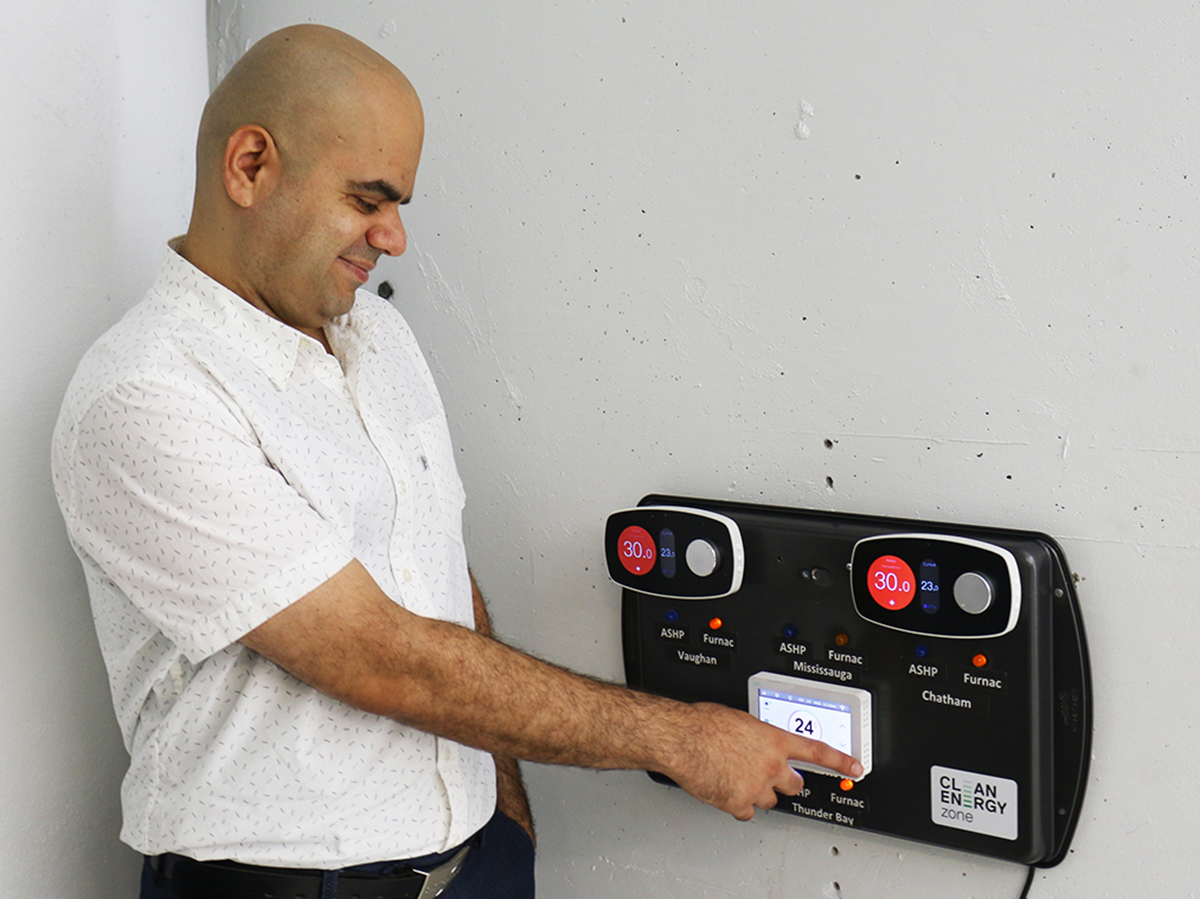Bringing down the house: Meet the startup on a mission to help homeowners reduce their carbon footprint

Nima Alibabaei pictured with one of BKR Energy's HVAC prototypes.
According to the most recent figures, Canada’s buildings (PDF file) emitted (external link, opens in new window) almost 86 megatonnes of carbon dioxide in 2015; to put that into perspective, that’s more than sectors like heavy industry, agriculture and waste. Homes tend to consume huge amounts of energy, especially in cold Canadian winters, but an efficient HVAC (heating, ventilation and air conditioning) system can change that. Nima Alibabaei, founder of the Clean Energy Zone’s BKR Energy (external link, opens in new window) , plans to improve the energy efficiency of houses with his innovative HVAC model. Nima got his PhD in mechanical engineering from Ryerson in 2016, and won an IESO student research award in the same year. We talked to Alibabaei recently to learn more about the new technology and his startup’s long-term plans.
Q: What is BKR Energy?
A: BKR Energy has a focus on HVAC energy systems. Our mission is to reduce energy costs for homeowners and decrease greenhouse gas (GHG) and carbon emissions to protect the environment. So far we’ve just focused on residential buildings, because their HVAC systems can be upgraded using a heat pump, which only uses electricity.
Q: How did you come up with the idea for a company like this?
A: After completing my PhD at Ryerson, I was working on a smart controller which used natural gas, emitting lots of GHGs, as well as a heat pump, which consumed electricity. I thought, if this controller becomes commercialized in the future, it will help homeowners. But it needed to be cleaner. So that’s how I got the idea to launch my own startup company; to develop this technology. The name “BKR” stands for Best Knowledge-based Residential energy solutions.
Q: How did the skills from your PhD help you start your company?
A: Some functions and principles which I learned in my PhD here helped me make the connection from electrical to mechanical engineering, which I needed for BKR. The environment of Ryerson encouraged me to follow through with the ideas I had been thinking about for a while. The award I won also really supported me financially to improve my company’s technology.
Q: What has it been like working at the Clean Energy Zone?
A: I like working with CUE and the Clean Energy Zone because the other companies are also focusing on clean technology, so there’s lots of good communication between the startups and I’ve made really good friends here. We have all the resources we need, and we can get very good mentorship from researchers at CUE. All these factors make working here a positive experience.
Q: What are your long-term goals for the company?
A: We are connecting the company to utilities in Ontario, such as Union Gas, and soon NRCan (Natural Resources Canada). A few weeks ago, we had a meeting in Ottawa with a representative from NRCan and they really like the technology. We installed a copy of the system controller in their lab. We’ve also been asked to install the system in some properties for Mattamy Homes, so in the near future we’re going to have the whole system up and running under the supervision of NRCan.
Kiki Cekota is a fourth-year journalism student at Ryerson University.